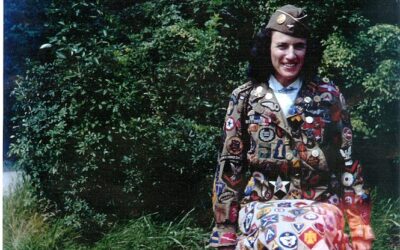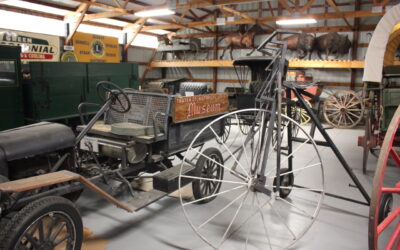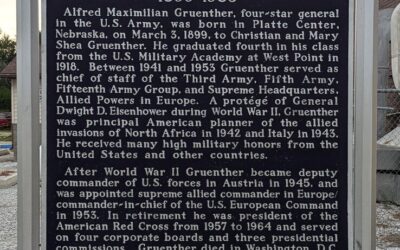George B. Skinner (1833-95) was an early Lincoln resident who operated a livery, sale, and feed business but was better known for his temperance work. His longtime presidency of the Red Ribbon temperance club in Lincoln earned him the unofficial title of “Bishop” Skinner, who was said to preside over his club meetings every Sunday afternoon with all the dignity and fervor of a regular bishop. Skinner also served as president of the State Temperance Society, organized in May 1878.
Skinner was born in 1833 in Connecticut. At the age of twenty he moved to St. Joseph, Missouri, and thereafter worked in various fields including freighting and livestock dealing. While traveling in the West he met David Butler, then a cattle shipper, and afterward the first governor of Nebraska. Butler asked Skinner to assist with the sale of state land in the city of Lincoln to raise funds for the erection of state buildings after the capital was removed from Omaha. Skinner relocated permanently to Lincoln about 1870 at the urging of Governor Butler.
In 1873 Skinner was appointed street commissioner of Lincoln and hired as many unemployed as possible to repair and improve city streets. In the late 1870s he established Skinner’s Barn between P and Q streets on North Twelfth, which became one of the most popular livery businesses in Lincoln.
Skinner is best remembered for his longtime presidency of the Lincoln Red Ribbon temperance club. At first an enthusiastic drinker, he became a teetotaler after hearing a series of lectures by reformer John B. Finch in Lincoln in November of 1877. When Finch brought the Red Ribbon movement to Lincoln, Skinner was elected president of the local group and retained the office until he died in 1895.
Each club member signed a pledge of abstinence from liquor and wore a red ribbon on his lapel. The Lincoln group, with thousands of members, was said to be one of the largest in the country. When Skinner died in 1895, he was eulogized by the Nebraska State Journal (February 8, 1895) as a “quaint, forcible and original character” who had done “as much for temperance as any one man in the whole state of Nebraska.”



